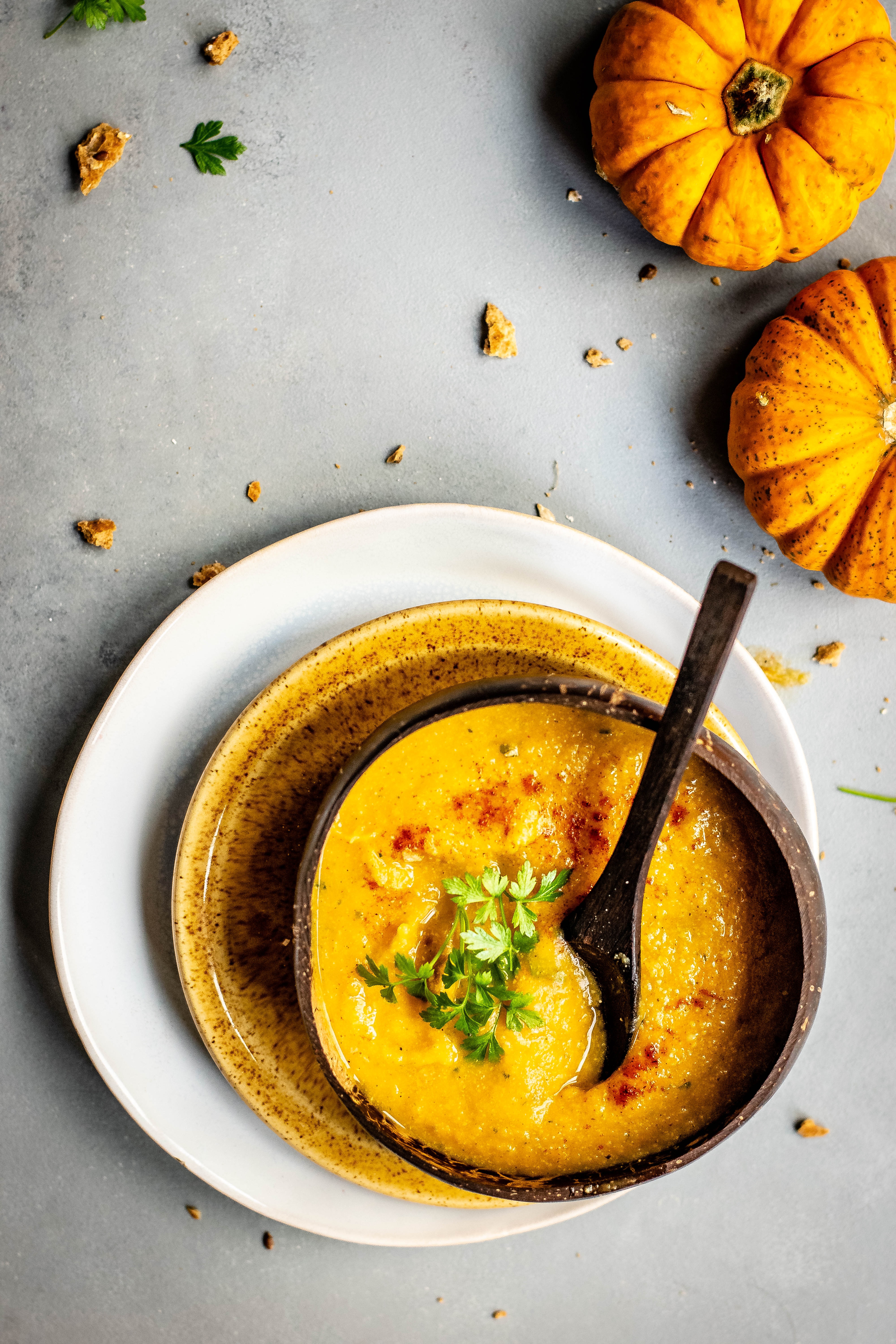
by Tanya Keam | May 2, 2023 | Acupuncture, Autoimmune, Bloating, Chinese medicine, Chronic fatigue, Client information, Digestive health, Health practitioner, Herbal remedies, IBS, Immune system, Inflammation, Loose stools, Nambour, Nourishing, Seasonal living, Sunshine coast
Digestive health in Chinese medicine is determined by the digestive symptoms we experience. The way food is prepared and cooked affects how we absorb nutrients. Our energy level, mood, body shape and muscle mass, flavour cravings, gyneocological problems and bowel movements tell us important information. Research is now suggesting a link between the gut-brain connection with conditions like Irritable Bowel Syndrome (IBS) (1) and the effects of our mental health and stress levels impacting our gut health. From a Chinese medicine point of view the way humans can overthink and worry in the mind, directly affects the digestion. Science is just now catching up with digestive health in Chinese medicine.
In Chinese medicine, a lot of emphasis is on the energetics of the spleen organ. What does the spleen do? Its job is to digest food, coagulate blood and metabolise fluid in the body. In other words, transform food and water into energy and then transport that energy around the body to make everything our body is made up of such as blood cells and muscle.
Because our core body temperate ranges from 35.9 to 37.2, the spleen does a much better job when cooked foods are eaten. Like our tummy is a nice warm cauldron. Having an icy cold smoothie, cold breakfast and cold water throughout the day make the spleen work harder by first using energy to warm up whats been ingested, then ‘transform and transport’. Going from a 19 degree fridge temperate (or even colder if you’re eating something frozen, to a 36.5 degree stomach temperature!) So its doing double the work! Symptoms that can arise are fatigue, bloating, excessive sweet cravings, soft and/or loose stools, poor muscle tone and deficiency of minerals and nutrients due to poor absorption.
It’s not to say every meal we have needs to be cooked. But a warm cooked breakfast such as eggs or oats, starts your day off well by keeping you fuller for longer (protein makes you feel fuller so daily eggs are a good option). Salads and raw fruit is still important to consume for vitamins and minerals but ease off on them in the cooler months, or have the salad at room temperature.
Cauldrons of soups, pots of fragrant teas, bowls of steaming rice and slow cooks stews are your best friend in the cooler months because no vitamins or minerals are lost in the cooking methods (like when steaming or blanching vegetables). Instead, all of the nutrients stay in the liquid. Warm meals keep us well and energised.
For people who cannot stomach food in the morning, this is due to the stress hormone cortisol being too high. Adrenaline kicks in when you wake up to get you going for the day because Cortisol is highest first thing in the morning. Often reaching for a coffee on an empty stomach stimulates adrenaline further and people live in this cycle of cortisol – adrenaline. If you have a job where getting up at 3.30am is your day, then you’re not going to be hungry because you’re body is suppose to be still asleep, but come 6-7am your stomach should be telling you to eat something by then. If you really do enjoy a morning coffee, aim for mid morning and have food with it so the caffeine isn’t triggering adrenaline and cortisol.
Ideally, waking up to hydrate with room temperature to warm water, then eat a warm breakfast between 7-9am is best for our digestive health in Chinese medicine theory. The spleen energy kicks in from 9-11am to do its T & T function. With daily exercise, daily bowel movements should be well formed and feel complete. If you need to wipe your bottom a lot or theres quite a lot of smell or mess in the toilet are you flush – your spleen is under-fuctioning like there is a “stickiness” in your stools. In Chinese medicine we call this dampness. Acupuncture and herbal medicine can quickly harmonise this. On the other hand if you’re bowels are irregular or sluggish then the body is absorbing waste back into the body – this can lead to liver problems and further bowel problems. Research has also shown that the warm therapeutic effect of moxibustion (burning compressed mugwort on or near a person’s skin) to help alleviate various conditions involving pain and discomfort, including IBS, showed moxibustion may also provide a benefit to IBS patients in 20 randomised-controlled trial results (2).
If you are suffering from digestive symptoms mentioned above or you believe you have poor digestion, have been diagnosed with inflammatory bowel, IBS or you’re aware stress and emotions are upsetting your stomach, please contact us today to discuss how we can help your digestive health at our Nambour Acupuncture clinic in the Sunshine Coast hinterland.
Hi, I’m T anya, an AHPRA registered Acupuncturist and health practitioner in Nambour in the Sunshine Coast hinterland, Queensland Australia. I practice Chinese medicine because its safe, logical, relevant and has effectively shown methods of natural wellness for thousands of years (read more about my training here). Life doesn’t need to be complicated and nor does the treatment approaches to get people feeling vibrant and well. I’ve seen people gain a lot from treatments, much more than just alleviating symptoms. It’s exciting to connect with people and share deep wisdom from the classics of ancient and traditional medicine, with modern protocols for todays mind-body living. See you in the clinic !
anya, an AHPRA registered Acupuncturist and health practitioner in Nambour in the Sunshine Coast hinterland, Queensland Australia. I practice Chinese medicine because its safe, logical, relevant and has effectively shown methods of natural wellness for thousands of years (read more about my training here). Life doesn’t need to be complicated and nor does the treatment approaches to get people feeling vibrant and well. I’ve seen people gain a lot from treatments, much more than just alleviating symptoms. It’s exciting to connect with people and share deep wisdom from the classics of ancient and traditional medicine, with modern protocols for todays mind-body living. See you in the clinic !
References:
- Harvard Health Publishing (2018). ‘The gut-brain: connection. At: ’https://www.ncbi.nlm.nih.gov/pmc/articles/PMC6111498/
- Mayo Clinic (2018). “Irritable Bowel Syndrome”. At: https://www.mayoclinic.org/diseases-conditions/irritable-bowel-syndrome/symptoms-causes/syc-20360016
- https://bmccomplementmedtherapies.biomedcentral.com/articles/10.1186/1472-6882-13-247#Sec7
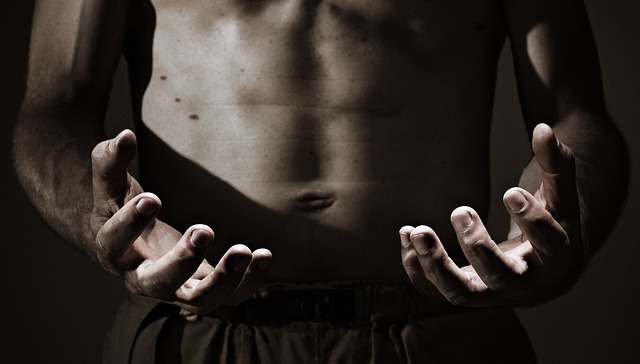
by Tanya Keam | Aug 30, 2022 | Acupuncture, Autoimmune, Chinese medicine, Client information, Exercise, Immune Support, Immune system, Inflammation, Joint pain, Nambour, Nutrition, Pain, Stress, Sunshine coast
Acupuncture for Inflammation is showing positive results in research. Inflammation refers to your body’s process of fighting against things that harm it, like infections, injuries, and toxins, in an attempt to heal itself. When something damages the cells, your body releases chemicals that trigger a response from your immune system.
Chronic inflammation can cause autoimmune disorders, such as Lupus or Chron’s, where your body attacks healthy tissue. Exposure to toxins, like pollution or industrial chemicals. Untreated acute inflammation, such as from an infection or injury.
Other factors that contribute significantly to inflammation is poor diet and stress.
What about stress?
- Working too much, over doing it
- Poor diet
- Lack of exercise
- Environmental factors
- Emotional distress
- Not taking care of yourself
- Injury, trauma – sometimes inflammation is a good thing when there’s been trauma to the body. However its important to quickly reduce the inflammation so the body can heal and get well
Try to avoid these “foods” when grocery shopping:
- Refined carbohydrates, such as white bread and pastries
- Hot chips and other fried foods (often fried in canola oil which is GMO)
- Margarine
- Soft drinks and other sugar-sweetened beverages (including some alcoholic drinks)
- Red meat and processed meat (hot dogs, sausages)
- Corn syrup
- Packaged foods with ingredient and numbers on the ingredients list you don’t understand
- Drive-through foods
Other foods that may contribute to inflammation in the body for some people may include:
- Gluten (proteins trigger the immune system to jump into action, causing inflammation). This inflammation can affect the body’s organs and soft tissue. However sometimes, its the pesticides, herbicides or other chemicals used in the processing of certain grains which can cause gluten sensitivity.
- Dairy
- Soy
- Corn
- White sugar
An anti-inflammatory diet is rich in good oils, fats, omega’s and antioxidants…
- Olive oil, flaxseed oil
- Green leafy vegetables (such as spinach, kale, and collards)
- Nuts
- Tumeric, ginger
- Fatty fish (like salmon, mackerel, tuna and sardines)
- Fruits (such as avocado, strawberries, blueberries, cherries, goji berries, pineapple, papaya)
- Raw unprocessed honey
- Coconut
- Tomato
- Bone broth
- Ghee
- A rainbow of fruits and vegetables
Try to eat as organic and local as possible. In season fruits and vegetables are also important. Certified organic can be expensive so if you cant source it, make sure you thoroughly wash your food. Or better yet start a little vegie garden and grow what you can at home.
How can Chinese medicines and Acupuncture for Inflammation help?
Acupuncture stimulates your body to help your own body to make its own medicine, like giving your internal healing response a 10-20% boost. The pins spark your resources; what nature gave you and continues to give you.
Acupuncture and the other branches of Chinese medicine (nutrition, herbs, massage, heat therapy and exercise) restore homeostasis and keep the body functioning at an optimal level. When the body is functioning at an optimal level, we’re far less likely to get sick, and far more likely to recover quickly when we do get sick, inflammatory conditions included. Read more here about Traditional Chinese Medicine as a health modality here:
Autoimmune conditions are a chronic condition so healing is a longer process, the same way it took a long time for the autoimmune markers to show up in the first place. Never the less, we can balance your immune system with acupuncture and herbal medicine, dramatically help with nutrition specific for you as an individual and guide you to manage lifestyle factors to reduce autoimmune markers or better manage the symptoms.
If you think you may have inflammation happening in your body or have been diagnosed with an autoimmune condition, please contact us today to discuss how we can help you at our Acupuncture and Chinese Medicine clinic on the Sunshine Coast. Healing is possible. Being pain free, managing pain, feeling energetic, relaxing the stress response in the body and feeling an overall wellness is possible.
 Hi, I’m Tanya Keam, an AHPRA registered Acupuncturist and health practitioner in Nambour in the Sunshine Coast hinterland, Queensland Australia. I practice Chinese medicine because its safe, logical, relevant and has effectively shown methods of natural wellness for thousands of years (read more about my training here). Life doesn’t need to be complicated and nor does the treatment approaches to get people feeling vibrant and well. I’ve seen people gain a lot from treatments, much more than just alleviating symptoms. It’s exciting to connect with people and share deep wisdom from the classics of ancient and traditional medicine, with modern protocols for todays mind-body living. See you in the clinic !
Hi, I’m Tanya Keam, an AHPRA registered Acupuncturist and health practitioner in Nambour in the Sunshine Coast hinterland, Queensland Australia. I practice Chinese medicine because its safe, logical, relevant and has effectively shown methods of natural wellness for thousands of years (read more about my training here). Life doesn’t need to be complicated and nor does the treatment approaches to get people feeling vibrant and well. I’ve seen people gain a lot from treatments, much more than just alleviating symptoms. It’s exciting to connect with people and share deep wisdom from the classics of ancient and traditional medicine, with modern protocols for todays mind-body living. See you in the clinic !
Links:
https://news.harvard.edu/gazette/story/2021/11/researchers-pinpoint-how-acupuncture-targets-inflammation/
https://pubmed.ncbi.nlm.nih.gov/24562381/
https://www.ncbi.nlm.nih.gov/pmc/articles/PMC1781596/
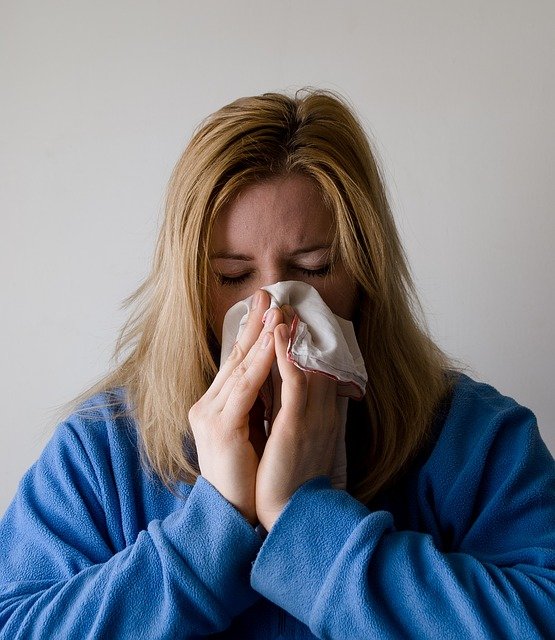
by Tanya Keam | Jan 14, 2022 | Acupuncture, Chinese medicine, Cough, covid19, Food, Immune Support, Immune system, Nambour, Nourishing, Seasonal living, Sunshine coast, Winter
Immune System treatment with Chinese Medicine
Immune system Chinese Medicine and Western medicine treatment approaches are quite different from each other.
When a virus enters the nose and throat, our immune system has receptors that tell the body there is an ‘invasion’, so the body sends helpers to ‘defend’ the body at the sight of infection, so we feel a sore throat come on for example. The immune system can often fight off an infection on its own, other times other invention may be needed.
The treatment for treating a common cold or flu from a western medicine perspective may include pharmaceutical use such as ibropofen to drop a fever, panadol for a headache, your doctor may advise rest and fluids to keep you hydrated. Elderly people are often given a flu shot in Autumn so they can build some antibodies to at least some of the inlfuenza variants in time for when Winter comes around and flu’s are more common.
The treatment for treating a common cold or flu or anything else viral from a Chinese medicine or eastern medicine perspective includes first understanding the onset. One person may come down with a sore throat and headache, another may feel lethargic, stuffy nose and feverish – even with the same variant of virus. The persons’ general health and medical history is also taken into account. For example if someone has chronic asthma but exercises regularly and eats a well balanced diet, compared to someone who is diabetic, obese and may be on multiple medications – they are completely different health status’s and their immune system response to a virus may be vastly different.
Herbal medicine is used at the first onset of symptoms for a virus which presents with flu symptoms and diagnosed usually with 3 seperate clinical presentations:
- Wind cold – runny nose, sneezing, some mucous congestion, fatigue, maybe a slight cough. There are no ‘hot’ symptoms and often happen if we just get caught in the rain or when the winds pick up in Autumn in the southern hemisphere.
- Wind heat – sore throat, swollen glands, headache, fever, achy muscles, lethargy, rapid heart rate and a yellow tongue coating. These are hot symptoms and often we catch this type of pathogen from someone else. Wind cold can sometimes turn into a wind heat pattern if the immune system has a hard time recovering. The mucous will go from clear to white to yellow to green and the fever etc kick in to further fight off the now hotter pathogen.
- Toxic heat and/or with phlegm – this type of condition is when wind heat isn’t resolved and a person gets more sick. They may end up with a lung infection with green or blood streaked sputum or have phlegm in their digestive system which leads to loose or sticky stools as well as lung phlegm that is hard to expectorate.
Depending on the persons constitution, herbal medicine is given as soon as symptoms come on. If you can get herbs into you within the first 12 hrs of a sore throat coming on (a wind heat pathogen for example), the herbs vent, disperse the expel the virus outwards preventing it from going deeper (aches, fever, then going to the chest then do not occur). As well as hydration, a healthy diet and rest. If however a pathogen lingers and nasty cough sticks arounds for weeks, a whole different approach is needed now as not only does the pathogen need to vent but the persons immune system needs some serious support!
Nutrition is a key part in anything cold/flu. Wind heat patterns already have so much heat in the body with fever, sore throats and aches going on we don’t want to add fire to fire so avoiding heating foods such as spicy, chocolate or coffee which create further heat is not recommended. But watermelon which is very cooling on the body also soothes a sore throat. Bonus! When a lot of mucous is present, it is not recommended to consume foods while sick that create more mucous in the body. These include dairy products and foods that have the texture of mashed avocado, peanut butter or bananas – they have ‘sticky’ consistency which is exactly what phlegm is. Whereas as a wind cold presentation would benefit from some spices such as chai tea which have dispersing and slightly warming qualities to balance out that cold invasion. it is a simple balance of cold balances hot, hot balances cold and avoiding those sticky ‘damp’ kind of phlegm foods when you have a chesty cough.
Traditional Chinese medicine consists of multiple facets to healing including acupuncture, cupping and gua sha therapy, massage, herbal medicine, exercise, nutrition and lifestyle recommendations to keep people well and as a way of preventative medicine. The lung energy is very much associated with the immune system so doing exercises that strengthen the lungs such as swimming, yoga, breath work and running build that lung capacity and ‘chi’ (energy). Someone who has Asthma would really benefit from swimming to strengthen the lungs and with the bonus of outside exercise you get Vitamin D too. Many minerals and vitamins found in our foods also support the immune system which is well researched, so eating a well balanced diet with lots of fruit and veggies is looking after you!
Allowing fevers to break on their own (without always reaching for the Ibuprofen) is a good sign your immune system is fighting off an infection. Further intervention is rarely needed when a fever gets high, but shouldn’t be disregarded either as a high fever can cause further illness. Getting a cold or flu every now and then is okay as well as your body creates antibodies to further protect itself for future attacks. Common herbs to strengthen the immune system in Chinese medicine are Huang Qi (Astragalus), Lingzhi (Reishi mushroom) and Bai zhu (Atractylodis Macrocephalae) which can be taken through the cold flu season to boost the immune system.
Here is a simple recipe to help a lingering cough!
If you’d like support in balancing your body and immune system Chinese medicine style then book in for a consult and treatment and we will get your system in great shape! You can book online or contact us at our Sunshine Coast Acupuncture and Chinese Medicine Clinic in Nambour on the beautiful Sunshine Coast.
 Hi, I’m Tanya, an AHPRA registered Acupuncturist, bodyworker and doctor of Chinese medicine in Nambour in the Sunshine Coast hinterland, Queensland Australia. I practice Chinese and natural medicine because its safe, logical, relevant and has effectively shown methods of natural wellness for thousands of years (read more about my training here). Life doesn’t need to be complicated and nor does the treatment approaches to get people feeling vibrant and well. I’ve seen people gain a lot from treatments, much more than just alleviating symptoms. It’s exciting to connect with people and share deep wisdom from the classics of ancient and traditional medicine, with modern protocols for todays mind-body living. See you in the clinic !
Hi, I’m Tanya, an AHPRA registered Acupuncturist, bodyworker and doctor of Chinese medicine in Nambour in the Sunshine Coast hinterland, Queensland Australia. I practice Chinese and natural medicine because its safe, logical, relevant and has effectively shown methods of natural wellness for thousands of years (read more about my training here). Life doesn’t need to be complicated and nor does the treatment approaches to get people feeling vibrant and well. I’ve seen people gain a lot from treatments, much more than just alleviating symptoms. It’s exciting to connect with people and share deep wisdom from the classics of ancient and traditional medicine, with modern protocols for todays mind-body living. See you in the clinic !
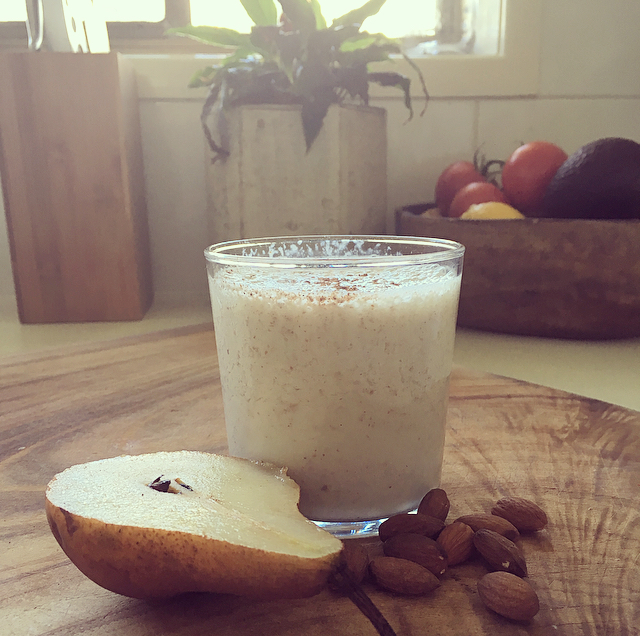
by Tanya Keam | Jun 11, 2018 | Acupuncture, Chinese medicine, Client information, Cough, Dairy alternatives, Dairy free, DIY Wellness Tips, Food, Herbal remedies, Homemade, Immune Support, Immune system, Nambour, Nutrition, Recipes, Seasonal living, Smoothie, Sunshine coast, Vegan, Vegetarian, Wellness, Winter
A simple Chinese Medicine cough recipe
Chinese medicine is seasonal medicine – what better way to take care of yourself than a cough recipe to look after you this season. In Winter it is recommended to consume less cold and raw food as it harsh on our digestive system to process, which is a balmy 36.5 degrees inside. Putting something the temperature of the fridge in a nice warm coldren stomach, first takes energy to warm it before it can digest it. This can lead to fatigue, bloating, and loose bowel movements.
In late Autumn and Winter we opt for:
- More warming foods such as soups and stews to warm us up from the inside!
- Smoothies are generally not recommended in Winter at all as they are too cold. However putting a wonderful twist on the conventional fruit smoothie so that is warming not only for our digestive system but designed to benefit the lungs and relieve coughs.
The main ingredient, pears, is highly valued in Chinese medicine as the fruit that is most beneficial for coughs. What does Autumn and Winter bring? You guessed it, coughs!
Pears are “sweet, slightly sour, and cool.” They “generate fluids” but also “dissolve phlegm,” so they are ideal for treating dry coughs, a hoarse voice, thirst and agitation in general.
Our second key ingredient is almonds which is also a great dairy alternative in smoothies. Almonds have similar properties to apricots in Chinese medicine, with apricot seeds being used as one of the key medicinals for treating coughs. Almonds are not as potent as apricot seeds (which have some mild toxicity and shouldn’t be consumed on a regular basis), but they do have some similar properties – moistening the lungs, relieving coughing and wheezing. That makes them the perfect complement to pears in this smoothie.
This recipe is specific for almond milk which helps resolve phlegm, so don’t switch it up for dairy milk as dairy is more phlegm forming.
Chinese Medicine Cough Recipe (Spiced Pear Smoothie with Almonds and Chia)
Serving size: About 1-2
Ideal for high speed blender
Ingredients
1 Pear (room temperature)
¾-1cup Almond Milk (how thick do you like it?)
10 natural Almonds (soaked overnight in water if possible, otherwise raw is fine)
¼-1/2 teaspoon Garam Masala spice
Dash Cayenne pepper or Cinnamon (to keep the digestive system warm)
1 tablespoon Chia Seed (can be soaked in almond milk prior for 15 minutes to turn into a jelly)
1-2 teaspoons Manuka honey
NO ICE !
Directions
Blend all ingredients until smooth. Enjoy!
Take care this Winter, there has already been many colds and influenza floating around.
 Hi, I’m Tanya, an Acupuncturist and Chinese medicine practitioner in Nambour on the Sunshine Coast, Queensland Australia. I practice Chinese medicine because its safe, logical, relevant and has effectively shown methods of natural wellness for thousands of years (read more about my training here). Life doesn’t need to be complicated and nor does the treatment approaches to get people feeling vibrant and well. I’ve seen people gain a lot from treatments, much more than just alleviating symptoms. It’s exciting to connect with people and share deep wisdom from the classics of ancient and traditional medicine, with modern protocols for todays mind-body living. See you in the clinic !
Hi, I’m Tanya, an Acupuncturist and Chinese medicine practitioner in Nambour on the Sunshine Coast, Queensland Australia. I practice Chinese medicine because its safe, logical, relevant and has effectively shown methods of natural wellness for thousands of years (read more about my training here). Life doesn’t need to be complicated and nor does the treatment approaches to get people feeling vibrant and well. I’ve seen people gain a lot from treatments, much more than just alleviating symptoms. It’s exciting to connect with people and share deep wisdom from the classics of ancient and traditional medicine, with modern protocols for todays mind-body living. See you in the clinic !
Contact me
Book online

by Tanya Keam | Nov 2, 2017 | Acupuncture, Anxiety, Body clock, Chinese medicine, Client information, Daily Rituals, DIY Wellness Tips, Immune system, Insomnia, Mental health, Nambour, Sleep, Stress
The impact of Insomnia on your health
Poor sleep leads to a host of concerns affecting both health and lifestyle. Such as:
- Mental health issues such as anxiety and depression
- Obesity and poor metabolism
- Heart disease
- Hypertension (high blood pressure) from the increased impact on cardiovascular health
- Lack of concentration
- Poor productivity
- Fatigue
- Low Immunity
How to manage insomnia with Chinese Medicine and natural remedies
In Traditional Chinese Medicine the 24 hour day is viewed in 2 hour blocks – such as 7-9am is when the energy of your stomach is the strongest (breakfast time!). 1-3am is liver time (when life is a bit stressful it impacts the liver so you’re awake thinking about the world’s problems at 2.30am).
If you are having trouble falling asleep, staying asleep, are restless, having unpleasant dreams or relying on sleeping tablets then consider some lifestyle adjustments listed below:
- Go to bed at the same time every night and before 10.30pm. Why? Our bodies have a sleep cycle every 90 minutes within a 24 hour day. Missing the window to fall asleep such as at 9.30pm, it is most likely that you will be awake until the next sleep cycle 90 minutes later.
- Avoid/reduce over-stimulating food such as hot peppers, alcohol, and coffee that overstimulate the nervous system causing an imbalance in the liver.
- Drink chrysanthemum tea – A light yellowish flower that has been used for thousands of years in Traditional Chinese Medicine for insomnia and liver health. Other sleepy time teas are also helpful – lavender, spearmint, hops and camomile.
- Get acupuncture to improve the quality of your sleep and general maintenance of your health and wellbeing. Acupuncture also puts our body back into the ‘rest and digest’ (parasympathetic state) where healing, proper rest and feelings of wellbeing reside. A 2016 study showed that “Acupuncture compared to sham/placebo and pharmacotherapy showed statistically significant results in a systematic review for sleep quality in people with insomnia, with further studies need to support the efficacy of acupuncture for sleep”.
- Herbal medicine prescribed by a registered practitioner. Herbs can be very powerful sleep aids that don’t tend to have the same issues with side effects as more conventional pharmaceuticals.
- Remove electronics from your room, as well as turning off bright lights such as the blue light on your phone/ipad 1 hour before bed.
- Do regular exercise, both high intensity and low impact. Preferably in the morning as afternoon evening exercise can keep you awake from all of the endorphins flowing. Sunshine in your eyes also activates Melatonin (a hormone that regulates sleep and wakefulness).
- Try a mediation and/or yoga class to bring awareness to your self. Both are fantastic for clearing your head and breathing into your abdomen – it will help bring your attention away from anxious thoughts. Both are considered “a practice”, meaning you make them a regular part of your life.
- Avoid icy cold drinks. According to Traditional Chinese Medicine your body has to work extra hard to heat up the icy cold water you are drinking, which is also over-stimulating your body to cause you to stay awake.
- Walk around barefoot will naturally get you feeling grounded and reconnects you with yourself. In Chinese Medicine, massaging the meridian points on the feet are correlated with sleep.
- Write down your thoughts/to-do lists before bed or earlier on in the day so that if you do wake up during the night, your mind doesn’t automatically start thinking about all the things that need doing the next day, week, month.
- Clean your sleep environment – declutter, dust and dirt removal, clean bed linen regularly and don’t sleep with your pets. Cats are known for running around the house at 2am!
- Manage other health concerns – sleep disturbances due to pain, itching, asthma or other breathing disturbances are not considered true insomnia. These issues must be treated to allow a restful night’s sleep.
 Hi, I’m Tanya, an Acupuncturist and Chinese Medicine practitioner in Nambour on the Sunshine Coast, Queensland Australia. I practice Chinese medicine because its safe, logical, relevant and has effectively shown methods of natural wellness for thousands of years (read more about my training here). Life doesn’t need to be complicated and nor does the treatment approaches to get people feeling vibrant and well. I’ve seen people gain a lot from treatments, much more than just alleviating symptoms. It’s exciting to connect with people and share deep wisdom from the classics of ancient and traditional medicine, with modern protocols for todays mind-body living. See you in the clinic !
Hi, I’m Tanya, an Acupuncturist and Chinese Medicine practitioner in Nambour on the Sunshine Coast, Queensland Australia. I practice Chinese medicine because its safe, logical, relevant and has effectively shown methods of natural wellness for thousands of years (read more about my training here). Life doesn’t need to be complicated and nor does the treatment approaches to get people feeling vibrant and well. I’ve seen people gain a lot from treatments, much more than just alleviating symptoms. It’s exciting to connect with people and share deep wisdom from the classics of ancient and traditional medicine, with modern protocols for todays mind-body living. See you in the clinic !
For more information about how I can assist your health and manage insomnia with Chinese medicine, you can contact me or you can now book online.
Research:
- JL Shergis, X Ni, M L.Jackson et al. A systematic review of acupuncture for sleep quality in people with insomnia, Complementary Therapies in Medicine, Vol 26, June 2016, p 11.20.
- Gao, Xiyan, Cuixiang Xu, Peiyu Wang, Shan Ren, Yanli Zhou, Xuguang Yang, and Ling Gao. “Curative effect of acupuncture and moxibustion on insomnia: a randomized clinical trial.” Journal of Traditional Chinese Medicine 33, no. 4 (2013): 428-432.
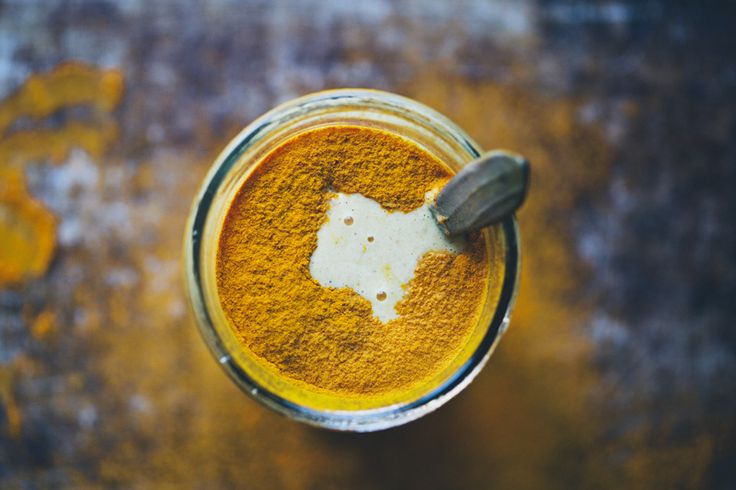
by Tanya Keam | Feb 4, 2015 | Autumn, Chinese medicine, Client information, DIY Wellness Tips, Food, Herbal remedies, Homemade, Immune Support, Immune system, Liver Health, Nourishing, Nutrition, Recipes, Seasonal living, Sunshine coast, Wellness, Winter
Immune Boosting Tumeric Lassi
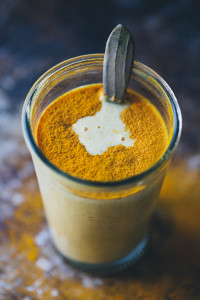
The Benefits of Tumeric
1. Otherwise known as Circuma longa, is a member of the ginger family, Zingaberaceae.
2. A wonderful aspect on the liver. Spring (and late winter) is an important time to consume herbs and foods that strengthen the liver, because spring is the season which rules the liver and gallbladder in Traditional Chinese Medicine. It is said to shrink engorged hepatic ducts, so it can be useful to treat liver conditions such as hepatitis, cirrhosis, and jaundice.
2. Highly valuable for the influence it exerts on the digestive system and the liver. In both Ayurvedic and Traditional Chinese Medicine, it is considered a digestive bitter and a carminative. It can be incorporated into foods, including rice and bean dishes, to improve digestion and reduce gas and bloating. It is a cholagogue, stimulating bile production in the liver and encouraging excretion of bile via the gallbladder. This improves the body’s ability to digest fats.
3. Recommended for chronic digestive weakness and/or congestion. It can be taken as a single extract or in the form of digestive bitters, which combine turmeric with other bitter and carminative herbs. Take either of these twenty minutes before meals, especially meals that are high in protein and/or fat. It is beneficial for people who feel tired after consuming meals or who experience gas and bloating.
4. Anti-inflammatory to the mucous membranes, which coat the throat, lungs, stomach and intestines. Turmeric decreases congestion and inflammation from stagnant mucous membranes. People with the following conditions could benefit from regular use of turmeric: IBS (Irritable Bowel Syndrome), colitis, Crohn’s disease, diarrhea, and post-giardia or post salmonella conditions. It can also reduce the itching and inflammation that accompanies hemorrhoids and anal fissures.
5. Useful to follow up antibiotic treatments, in addition to acidophilus and garlic. It helps to improve the intestinal flora and acts as an anti-bacterial.
6. Turmeric can also benefit skin conditions including: eczema, psoriasis and acne, for it is a potent detoxifier.
7. Turmeric is an antispasmodic to smooth muscles so it reduces digestive and menstrual cramping.
Try adding turmeric to your oatmeal, grains and beans, or take digestive bitters. Whatever way that turmeric is consumed it will benefit both the digestive system and the liver.
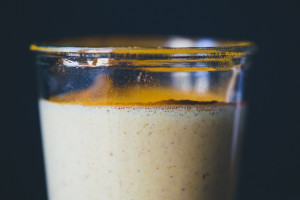
2 large or 4 small glasses
2 cups organic yogurt with active live culture, or dairy or nut milk
2 bananas
2 tsp freshly grated ginger
2 tsp honey, preferably raw (unpasteurized)
1/2 lemon, juice
2 tsp rosehip powder (optional but delicious, and a good C-vitamin boost)
1 tsp vanilla extract or ground vanilla
3-4 tsp ground turmeric (or fresh turmeric root)
Place all ingredients in a blender and mix on high speed until smooth. Add more yogurt if you prefer. Pour the lassi in two large glasses. For a more stunning presentation, dust 1 tsp ground turmeric on top before serving. Add a straw and serve.
Eat well, drink well, take care of you, see you in the clinic,
TK xx
Learn more > http://www.tanyakeamwellness.com

 anya, an AHPRA registered Acupuncturist and health practitioner in Nambour in the Sunshine Coast hinterland, Queensland Australia. I practice Chinese medicine because its safe, logical, relevant and has effectively shown methods of natural wellness for thousands of years (read more about my training here). Life doesn’t need to be complicated and nor does the treatment approaches to get people feeling vibrant and well. I’ve seen people gain a lot from treatments, much more than just alleviating symptoms. It’s exciting to connect with people and share deep wisdom from the classics of ancient and traditional medicine, with modern protocols for todays mind-body living. See you in the clinic !
anya, an AHPRA registered Acupuncturist and health practitioner in Nambour in the Sunshine Coast hinterland, Queensland Australia. I practice Chinese medicine because its safe, logical, relevant and has effectively shown methods of natural wellness for thousands of years (read more about my training here). Life doesn’t need to be complicated and nor does the treatment approaches to get people feeling vibrant and well. I’ve seen people gain a lot from treatments, much more than just alleviating symptoms. It’s exciting to connect with people and share deep wisdom from the classics of ancient and traditional medicine, with modern protocols for todays mind-body living. See you in the clinic ! 







